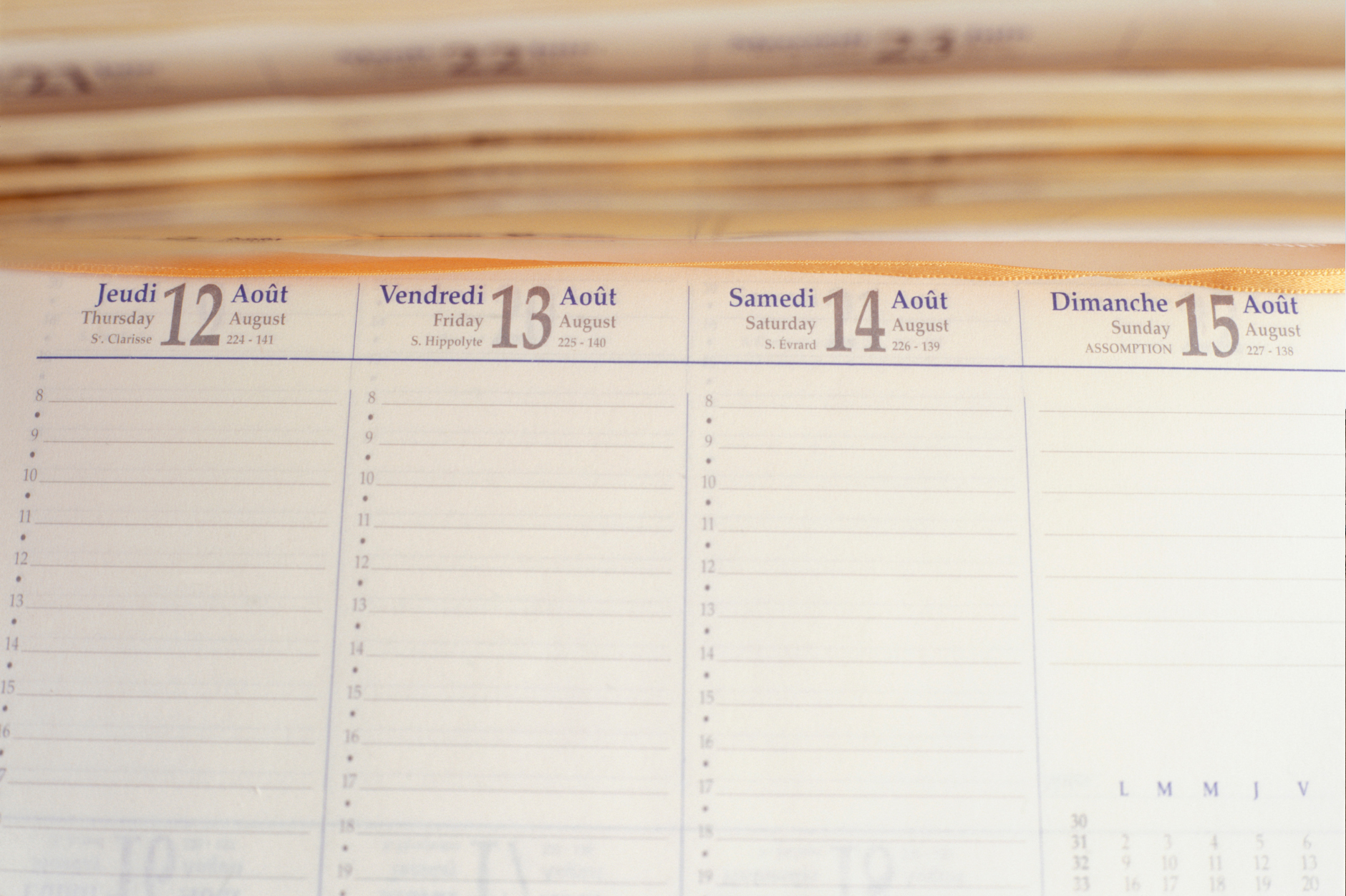What are the days of the week in French?
Posted by Josh on 17th Sept 2025 in the blog in the vocabulary category
You can’t get by in French without knowing the different days of the week. Below we’ve listed them and their English translations.
Note that we don’t capitalise days of the week in French like we do in English.
| French | English |
|---|---|
| lundi | Monday |
| mardi | Tuesday |
| mercredi | Wednesday |
| jeudi | Thursday |
| vendredi | Friday |
| samedi | Saturday |
| dimanche | Sunday |
For help with pronunciation, watch Alexa's YouTube video on days of the week in French.
For more on days of the week in French, Lesson 02 of The Complete French Course has you covered.
What do the different days mean in French?
Unlike the words for months in French, the words for days are quite different from their English equivalents, as you can see. But they actually share the same etymological meanings.
French is a Romance language, which means it evolved from Latin. You may have noticed that the ‘lun’ in ‘lundi’ sounds a lot like ‘lune’ - ‘moon’. That’s because lundi comes from the words ‘Lūnae diēs’ in Latin, meaning ‘day of the moon’. In English, that would be ‘moon day’ - or ‘Monday’.
Now, English isn’t a Romance language, but the words we use for the different days of the week have very similar origins. ‘Mardi’, ‘mercredi’, ‘jeudi’ and ‘vendredi’ are named after the Roman gods Mars, Mercury, Jove/Jupiter and Venus respectively, and the English words for these same days are named after the Norse equivalents of the same gods: Týr, Woden/Ordin, Thor and Freya. It’s for this reason that ‘Mars’ day‘ - or ‘mardi’ - in French becomes ‘Týr’s day’ - or ‘Tuesday’ - in English. Like ‘sun’ and ‘moon, you may have notice that these gods aren’t just gods - they’re also the names for different planets in the solar system.
If you ever find yourself forgetting the French word for a day of the week, think about what the English word means. Even if you can’t remember that ‘Thursday’ is ‘Jeudi’, you may remember that Thor is just another name for Jove - and that may be all you need to make the leap from Jove to ‘jeudi’.
‘Samedi’ and ‘dimanche’ are a little different. Saturday in English means ‘Saturn’s day’, so in French you would think it would look something like ‘saturdi’. However, ‘samedi’ comes from Sabbatī diēs, which refers to the sabbath. As for Sunday, that should look something like ‘solday’, right? But this word also has a different stem, coming from the Latin ‘diēs Dominicus’: day of the Lord.
Check out some of our other blog posts!
What subjects are studied at French collèges?
Posted on by Josh in the french culture categoryThey're probably different from what you might expect
Read moreHow to Learn French
Posted on by Kafi in the learning french categoryWhen it comes to learning French, it is better to do it a little bit every day than two long hours every so often.
Read moreHave fun learning French Today
People from all over the world enjoy learning French with Alexa Polidoro’s popular French audio and video lessons.




